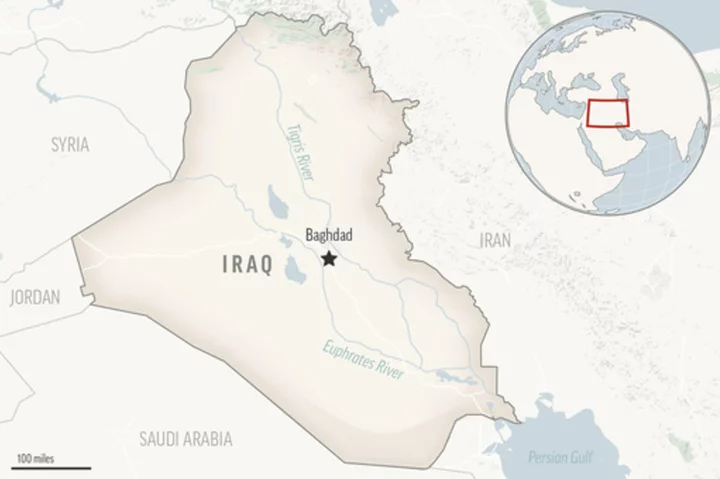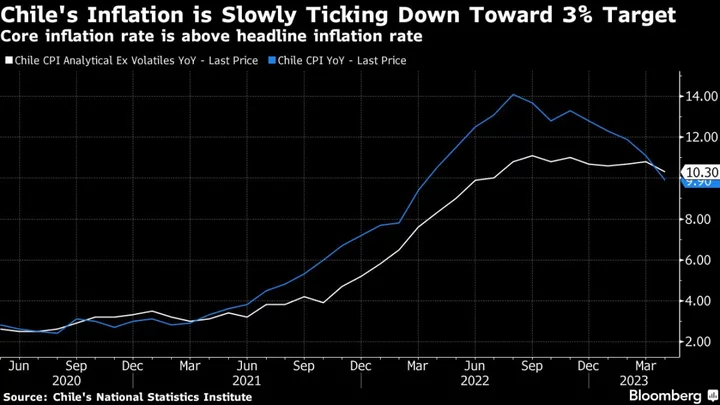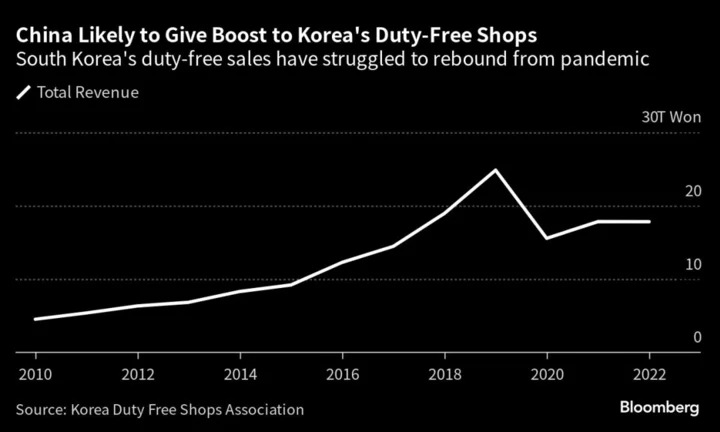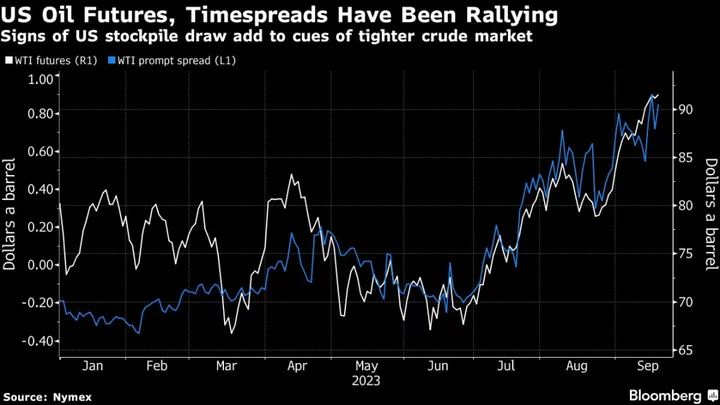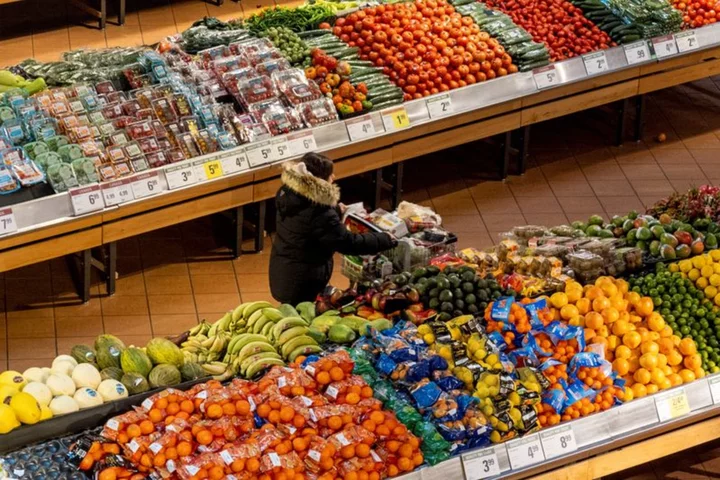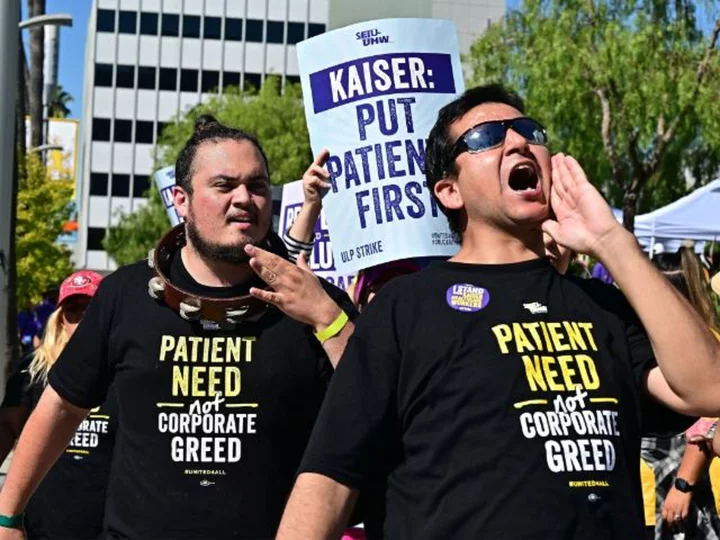BAGHDAD (AP) — Iraq’s parliament belatedly approved a record $152 billion budget for 2023 on Monday, after months of wrangling over the sharing of oil revenue between the central government in Baghdad and the semi-autonomous Iraqi Kurdish region in the north.
The process was also hampered by infighting between different Iraqi Kurdish parties. The budget — approved six months into the fiscal year and after four chaotic late-night voting sessions — allocates 12.6% of the revenue to the Kurdish region and is seen as strengthening Baghdad's hand on the oil revenues.
The central government in Baghdad and the Kurdish regional government in the city of Irbil have been locked in a dispute over oil revenue for years, while competing Kurdish parties are also at loggerheads over their shares.
In the absence of a binding law detailing the sharing of funds from oil and gas exports, the Kurdish region has moved ahead with exports on its own, while Baghdad has maintained that all exports should be run through the state-owned oil marketing company, SOMO, with Irbil receiving a share of the profits.
Under the new budget, the Kurdish region can market its own oil but must deposit the revenue in a bank account that officials from the central government can monitor. Baghdad will then deduct that amount from its monthly allocation to the Kurdish regional government and transfer any surplus money to Irbil.
The budget vote was dragged out over several days, in part due to objections by the largest Kurdish party, the Kurdistan Democratic Party, to the provisions on the revenue sharing process and a related dispute resolution mechanism.
The Shiite majority coalition holds the most seats in the 329-seat Iraqi parliament, with 220 seats. The Kurds, who are the second-largest ethnic group in Iraq, have about 60 seats, but they are divided between two main parties: the KDP and the Patriotic Union of Kurdistan (PUK), which are often at odds.
The finalization of the budget on Monday was a victory for Prime Minister Mohammed Shia al-Sudani's government, which was formed last year following a lengthy political vacuum in the wake of the 2021 elections.
Al-Sudani came to power with the support of the Coordination Framework, a coalition of pro-Iranian parties, after the influential Shiite cleric and political leader Muqtada al-Sadr — whose party had won the largest share of seats but not enough to form a government — withdrew from politics.
Paralyzed by the political stalemate, the parliament did not pass a budget last year. With a budget now in place for 2023, al-Sudani’s government is hoping to combat poverty and bring much-needed economic stability.
However, some analysts say the budget is predicated on an overly rosy outlook and warned of a ballooning deficit.
The budget projects 2023 revenue at about $103.3 billion, based on a projected price of $70 per barrel for oil exports, the main source of income for Iraq, with exports estimated at 3.5 million barrels a day, including 400,000 thousand barrels from the Kurdish region. The budget estimates a deficit of about $48 billion.
”“The new budget is a cause for concern, as it relies heavily on oil revenue,” said Mudhar Mohammed Salih, al-Sudani’s adviser for financial affairs. “If oil prices drop, the deficit will increase, forcing the government to borrow money. This is a risky proposition, as it could lead to debt problems.“
A report last month by the International Monetary Fund on Iraq's finances warned that the “fiscal loosening” proposed in the budget plan could lead to inflation and exchange rate volatility in the the short run, while in the medium term, oil price fluctuations could lead to "critical macroeconomic stability risks.”
“Barring a large increase in oil prices, the current fiscal stance could lead to mounting deficits and intensifying financing pressures in the coming years,” the report said.
Monday’s vote also approved the same budgets of $152 billion for 2024 and 2025 — apparently to avoid haggling over the issue for the next two years.
The parliament session came after an unannounced visit to Iraq by Iranian general Esmail Ghaani, according to two Iraqi Shiite political officials who spoke on condition of anonymity because they were not authorized to comment on the visit.
Ghaani heads the Revolutionary Guard’s Quds Force, an expeditionary arm of the paramilitary organization answerable only to Iran’s Supreme Leader Ayatollah Ali Khamenei. He replaced top Iranian general Qassem Soleimani, killed in a U.S. airstrike in Baghdad in January 2020.
The two officials said Ghaani left Baghdad on Thursday evening, shortly before the parliament convened in its first late-night session to begin voting on the budget.
___
Associated Press writer Abby Sewell in Beirut contributed to this report.

